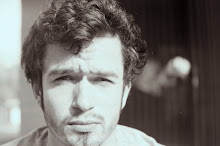
It is obvious that in the course of his practice a doctor will come across people who have a great effect on him too. He meets personalities who, for better or worse, never stir the interest of the public and who nevertheless, or for that very reason, possess unusual qualities, or whose destiny it is to pass through unprecedented developments and disasters. Sometimes they are persons of extraordinary talents, who might inspire another to give his life for them; but these talents may be implanted in so strangely unfavourable a psychic disposition that we cannot tell whether it is a question of genius or fragmentary development. Frequently, too, in this unlikely soil there flower rare blossoms of the psyche which we would never have thought to find in the flatlands of society. For psychotherapy to be effective a close rapport is needed, so close that the doctor cannot shut his eyes to the heights and depths of human suffering. The rapport consists, after all, in a constant comparison and mutual comprehension, in the dialectical confrontation of two opposing psychic realities. If for some reason these mutual impressions do not impinge on each other, the psychotherapeutic process remains ineffective, and no change is produced. Unless both doctor and patient become a problem to each other, no solution is found.
The doctor who does not know from his own experience the numinosity of the archetypes will scarcely be able to escape their negative effect when he encounters it in his practice. He will tend to over- or underestimate it, since he possesses only an intellectual point of view but no empirical criterion. This is where those perilous aberrations begin, the first of which is the attempt to dominate everything by the intellect. This serves the secret purpose of placing both doctor and patient at a safe distance from the archetypal effect and thus from real experience, and of substituting for psychic reality an apparently secure, artificial, but merely two-dimensional conceptual world in which the reality of life is well covered up by so-called clear concepts. Experience is stripped of its substance, and instead mere names are substituted, which are henceforth put in the place of reality. No one has any obligations to a concept; that is what is so agreeable about conceptuality – it promises protection from experience. The spirit does not dwell in concepts, but in deeds and in facts. Words butter no parsnips; nevertheless, this futile procedure is repeated ad infinitum
In my experience, therefore, the most difficult as well as the most ungrateful patients, apart from habitual liars, are the so-called intellectuals. With them, one hand never knows what the other hand is doing. They cultivate a “compartment psychology.” Anything can be settled by an intellect that is not subject to the control of feeling – and yet the intellectual still suffers…if feeling is underdeveloped.

No comments:
Post a Comment